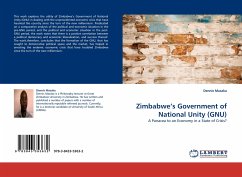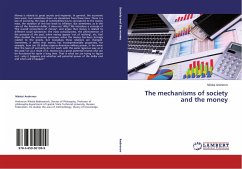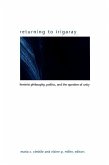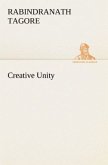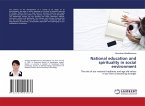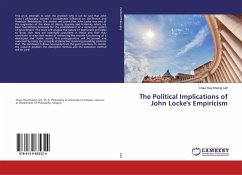This work explores the utility of Zimbabwe's Government of National Unity (GNU) in dealing with the unprecedented economic crisis that have haunted the country since the turn of the new millennium. Predicated on a comparative analysis of the political and economic situation in the pre-GNU period, and the political and economic situation in the post-GNU period, the work notes that there is a positive correlation between a political democracy and economic liberalization, and success thereof. The work,therefore, concludes that the formation of the GNU, that has sought to democratise political space and the market, has helped in arresting the endemic economic crisis that have troubled Zimbabwe since the turn of the new millennium.
Bitte wählen Sie Ihr Anliegen aus.
Rechnungen
Retourenschein anfordern
Bestellstatus
Storno

